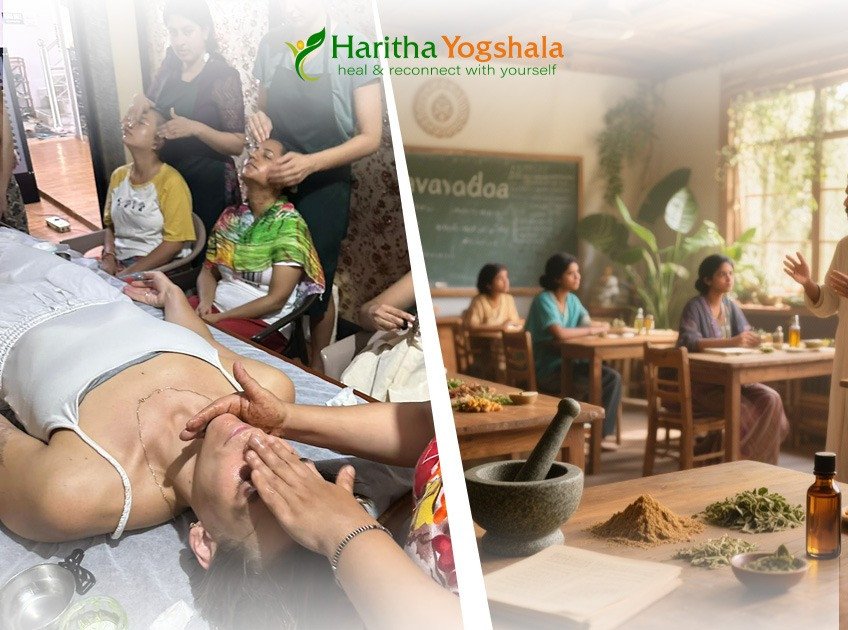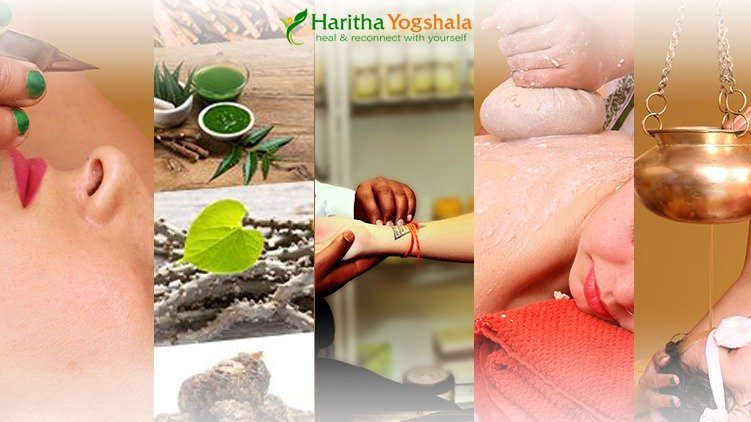
Worldwide trends towards natural and preventive healthcare have made Ayurveda- India’s ancient science of life, to come back in the limelight. More students, wellness professionals, and health enthusiasts are getting into Ayurveda diploma courses to dig deeper their understanding of holistic healing.
Nevertheless, it is a tough task to pick the right course when you have numerous programs available both in India and internationally. A good selection can determine your whole future in the wellness field based on factors like the quality of the curriculum, the availability of the practical training, and the credibility of the certification.
This is a detailed buying guide of an Ayurveda diploma course in 2025, which helps to know what to expect.
The very first and the most significant factor is authenticity. Make sure that the Ayurveda certification course you select is associated with a recognized Ayurvedic educational institution or certified by a national or international wellness board.
An authentic certification is a great professional credibility enhancer for you and also, it is a great assurance that the curriculum is based on classical Ayurvedic texts like Charaka Samhita and Ashtanga Hridaya.
For example, an institute like Haritha Yogshala in Rishikesh not only imparts the ancient Ayurvedic wisdom but also structures the education as per modern standards, thus, providing students both the theoretical and the practical aspects of the subject.
An Ayurveda diploma course that is well put together should give students an equitable share of the theoretical aspects, practical work, and incorporation of the lifestyle. Check for a syllabus that encompasses:
A perfect diploma will not only acquaint the students with yoga, meditation, and mindfulness but also help them understand the link between body, mind, and spirit.
The quality of an Ayurveda course depends heavily on the teachers. They ought to not only have knowledge from the books but also be experienced in the clinic and in practice for many years.
An institute delivering advanced teacher training in Ayurveda or a practitioner course in Ayurveda typically focuses on the aspect of mentorship that is, the students being offered personal assistance in the application of the old concepts to the new health issues.
Students through close contact with gurus, doctors, and practitioners get familiar with practical knowledge which is more than what is written in the books.

Ayurveda is basically a method that one has to come in direct contact with to fully understand. A complete diploma program would include live practice sessions, clinical exposure, and supervised case studies.
Such experiential learning elements for example Panchakarma procedures, Marma therapy, or oil preparation workshops allow the students to confront the challenge and apply what they have learned from the theory. If you wish to complete your training there, it is very much advised that you pick a program that offers a Panchakarma course in Rishikesh or a practicum at a well-known Ayurvedic clinic.
Whereas such immersive training - combining classroom study with real-world Ayurvedic contexts - is available at, for example, Haritha Yogshala.
Where you study has a major impact on how well you absorb Ayurvedic principles. Rishikesh, which is popularly known as the Yoga Capital of the World, is definitely one of the top places to go for a holistic education.
Connecting with nature, the Himalayas, and the Ganges not only gives a thoroughly nature-based experience but also goes hand in hand with the spiritual side of Ayurveda. Quite a few students decide to make their learning trip into a stay at the finest Panchakarma center in Rishikesh, thus, getting both rejuvenation and self-healing along with their education.
Once you have made up your mind to take the program, check out first how the Ayurveda school is going to facilitate you after the completion of the course. A proper Ayurveda diploma course must be able to make you eligible for several professions such as:
Quite a few programs offer career direction and/or internship opportunities at partner clinics and wellness centers.
Finally, looking at the journeys of previous students can also help you a lot. Their words, graduates' achievement stories, and web reviews can disclose to you the real quality of the institute's instruction and the help after the course.
Those educational institutions which keep deep and enduring relations with their alumni - thus providing them with the opportunities for networking and collaboration - are the ones which show a real and strong commitment to the development of their students.
The right Ayurveda diploma course is a decision that goes beyond the study; it is about choosing a lifestyle which is a philosophy.
A good program should be able to extend your reach not only as a healthcare provider but also as a human being - developing traits like awareness, love, and inner harmony.
If such a decision is yours, then you might want to check out Haritha Yogshala - the place where real Ayurveda education is accompanied by your holistic transformation. Whichever path you choose to follow - a therapy course, nutrition training, or a complete Ayurveda diploma, you will be taught by the faculty who are the embodiments of their teachings.